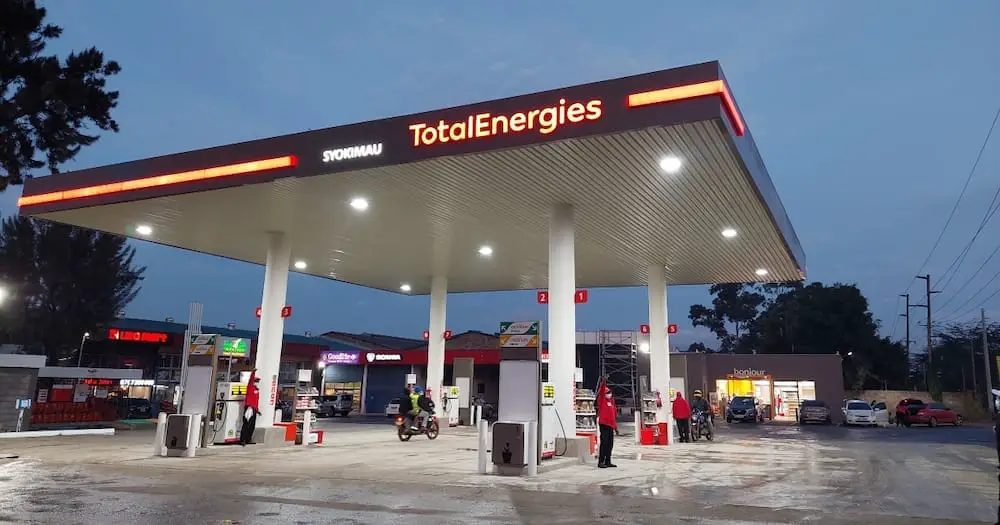Total Expands Electric Vehicle Infrastructure in Kenya with 13 New Charging Stations.
TotalEnergies, a global energy giant, has made a significant stride in supporting Kenya's transition to electric mobility by establishing 13 new electric vehicle (EV) charging stations across the country.


TotalEnergies, a global energy giant, has made a significant stride in supporting Kenya's transition to electric mobility by establishing 13 new electric vehicle (EV) charging stations across the country.
This initiative is a part of the company's broader commitment to sustainable energy and reducing carbon emissions, aligning with global trends towards cleaner transportation solutions.
Read: TotalEnergies to equip Tunis with a charging network for electric vehicles.
Strategic Locations to Boost Accessibility
The newly installed EV charging stations are strategically located to ensure maximum accessibility for electric vehicle users.
Key locations include major urban centers such as Nairobi, Mombasa, Kisumu, and Nakuru.
By placing these stations in high-traffic areas and along major highways, TotalEnergies aims to alleviate the range anxiety that potential EV adopters often face, making electric vehicles a more practical option for everyday use.
Supporting Kenya’s Green Agenda
Kenya has been proactive in its efforts to embrace renewable energy and reduce its carbon footprint.
The country’s government has set ambitious targets for increasing the use of renewable energy sources and promoting sustainable practices.
TotalEnergies' investment in EV infrastructure is a timely and supportive contribution to these national goals.
By improving the availability of charging stations, TotalEnergies is helping to create a conducive environment for the adoption of electric vehicles, which are crucial for reducing emissions from the transportation sector.
Technological Advancements and User Experience
The new charging stations feature state-of-the-art technology, ensuring that they are user-friendly and efficient.
Each station is equipped with multiple charging points, catering to different types of electric vehicles and charging requirements.
The stations offer both fast-charging and standard-charging options, making it convenient for users to recharge their vehicles quickly during short stops or opt for a slower, full charge during longer stays.
TotalEnergies has also integrated advanced payment systems, allowing users to pay seamlessly using various digital platforms.
This flexibility is designed to enhance the user experience, encouraging more drivers to switch to electric vehicles.
Related: Africa’s adoption journey to the electric vehicle.
Economic and Environmental Impact
The deployment of these charging stations is expected to have a positive economic impact.
It is likely to stimulate the local market for electric vehicles by reducing one of the significant barriers to entry – the lack of charging infrastructure.
This could lead to increased sales of electric vehicles, supporting local dealerships and potentially leading to job creation in related sectors, such as EV maintenance and charging station operations.
Environmentally, the shift from fossil-fuel-powered vehicles to electric vehicles is anticipated to contribute significantly to reducing greenhouse gas emissions.
As more drivers opt for electric vehicles, the cumulative reduction in emissions could be substantial, aligning with global efforts to combat climate change.
Future Prospects and TotalEnergies’ Commitment
TotalEnergies has expressed a long-term commitment to expanding its EV infrastructure in Kenya and other parts of Africa.
The company plans to monitor the usage of the current stations and gather data to inform future expansions.
This data-driven approach ensures that future installations will be even more efficient and strategically placed to meet growing demand.
In addition to infrastructure development, TotalEnergies is exploring partnerships with local stakeholders, including governments, private companies, and non-governmental organizations, to promote the benefits of electric mobility.
Educational campaigns and incentives for EV buyers are also part of the company's broader strategy to accelerate the adoption of electric vehicles.
Conclusion
TotalEnergies' initiative to set up 13 electric vehicle charging stations in Kenya marks a significant milestone in the country’s journey towards sustainable transportation.
By enhancing the infrastructure for electric vehicles, TotalEnergies is not only supporting Kenya’s environmental goals but also paving the way for economic opportunities in the burgeoning EV sector.
As the world moves towards greener alternatives, such proactive measures are essential in driving the global agenda for sustainable development.




